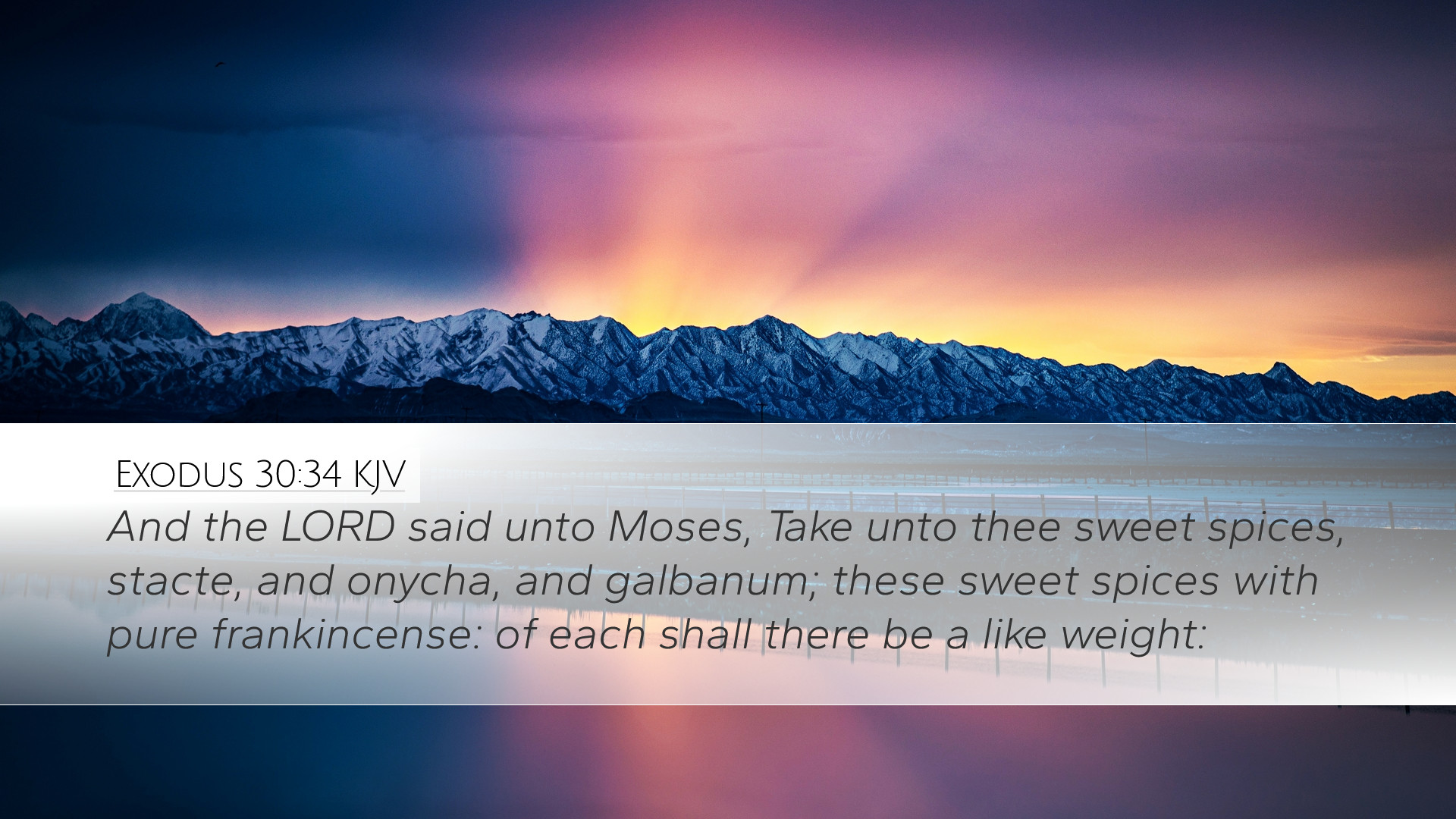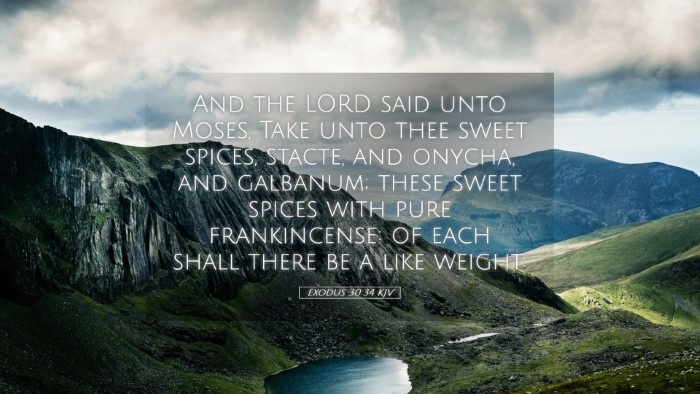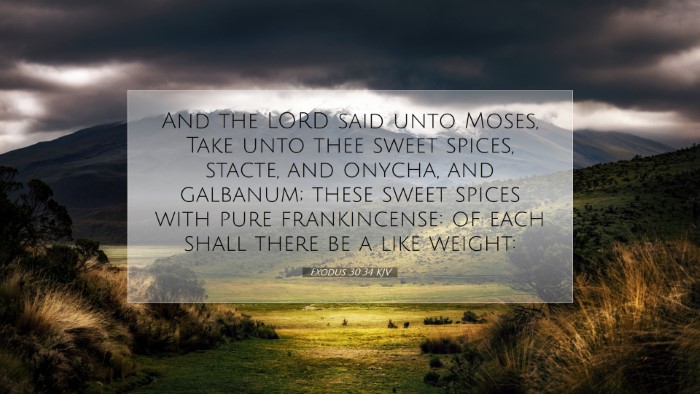Commentary on Exodus 30:34
Exodus 30:34 - "And the LORD said unto Moses, Take unto thee sweet spices, stacte, and onycha, and galbanum; these sweet spices with pure frankincense: of each shall there be a like weight."
Introduction
This verse finds its place in the instructions for the construction of the tabernacle and the elements needed for worship. The specific mention of the ingredients reflects not only the meticulous nature of the worship prescribed by God but also serves as a prefiguration of spiritual truths relevant to believers today.
Divine Instruction
1. The Nature of Worship
In this passage, the Lord specifies the elements to be used in the holy incense that was essential for worship. The command demonstrates that God is very particular about how He is to be approached and worshiped. As Albert Barnes notes, “God will not be worshiped at random; He has the right to dictate the terms of worship.” This highlights the importance of adhering to God's prescribed methods in all aspects of ministerial duties.
2. Symbolism of the Ingredients
Each ingredient - stacte, onycha, and galbanum - carries weighty symbolism. Matthew Henry comments on the significance of each item, indicating that they are not only for fragrance but may also represent the prayers of the saints. The combination of these spices signifies the varied aspects of spiritual offerings presented before God.
Spiritual Significance
1. Stacte
Stacte is often considered to represent the sweetness of the believer's soul as a result of Holy Spirit. It could also symbolize the blood of Christ, which, according to Adam Clarke, cleanses sins and offers a fragrant aroma of redemption. This aligns with the concept of Christians being a “sweet savor” unto God (2 Corinthians 2:15).
2. Onycha
Onycha has been interpreted as an ingredient that provides depth to the incense's fragrance. It signifies the depth of the worship experience, which should arise from a sincere heart. Clarke underscores the importance of inner sincerity during worship: “The outward observance must come from a heart filled with love and sincerity.”
3. Galbanum
Galbanum, with its stronger scent, reflects the harshness of sin and the need for atonement and forgiveness. Henry emphasizes that its inclusion reminds worshipers of the need for purification, as one cannot present impure offerings before the Holy God. It points to the necessity of understanding one’s sinfulness and the gracious provision of grace.
The Role of Frankincense
Frankincense has long been associated with prayer and divine presence. The inclusion with the other spices speaks to the holistic experience of worship where the scents symbolize the prayers and lives of the people rising to God. Barnes remarks that frankincense represents the quality of life expected from the worshippers, one that is fragrant and pleasing in God's sight.
Common Weight of the Spices
The instruction that each spice should have a like weight suggests the importance of balance in spirituality. Every act of worship must contain an equal measure of adoration, reverence, and sincerity. Clarke eloquently states that the balance of these elements prevents any of them from overpowering the others, symbolizing the wholeness of the worship experience.
Conclusion
Exodus 30:34 serves not only as a historical directive for temple worship but also as an enduring reflection on the nature of our worship. As pastors, students, theologians, and scholars, the emphasis must always be put on the intentionality and reverence of approaching God. The detailed instruction underscores that God desires a relationship characterized by sincere worship, humility, and a recognition of His holiness.
Reflection Questions
- How can we ensure that our worship practices align with God's specifications as given in scripture?
- In what ways can we incorporate the lessons from these spices into our personal worship and corporate ceremonies?
- What changes might we need to make in order to maintain the balance of offerings before God?


